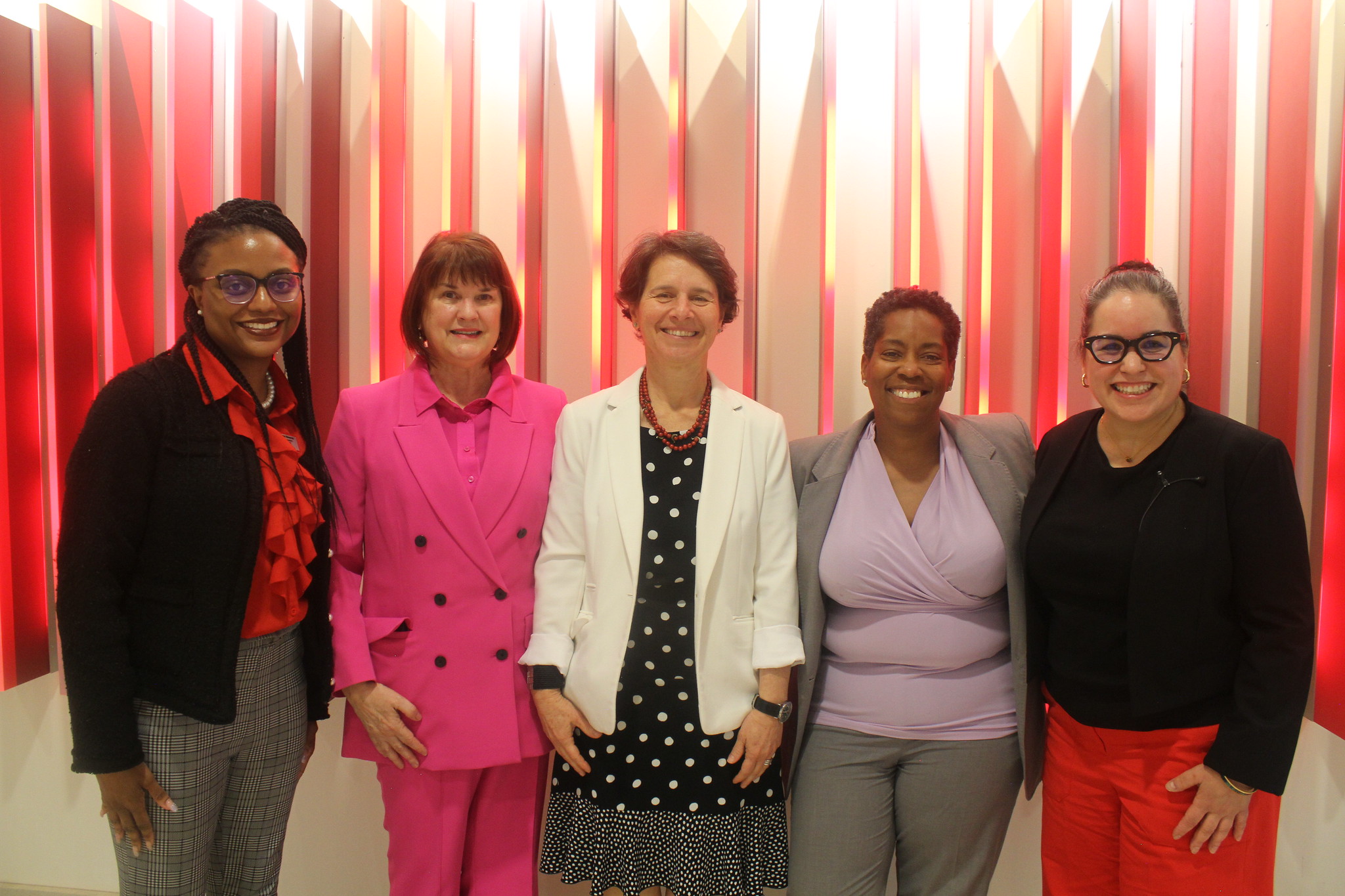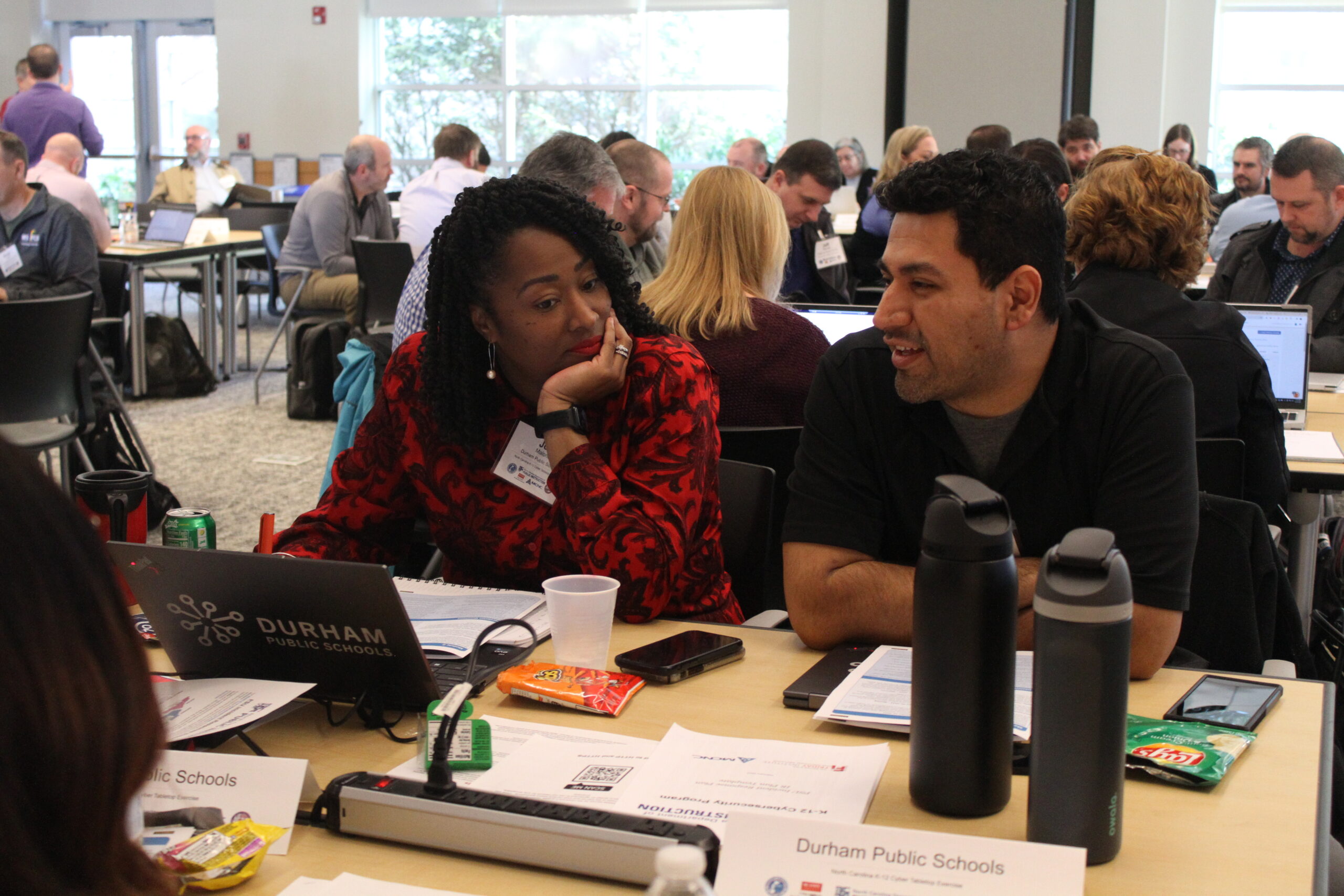Friday Institute Team will “Go Deeper” with New Oak Foundation Grant to Continue to Help Educators Build Capacity in Learning Differences
For the last seven years, the Friday Institute for Educational Innovation has offered a range of online professional development experiences that focus on learning differences, social and emotional learning (SEL) and learner agency. Now, with a three-year, $693,183 grant from the Oak Foundation, Friday Institute researchers aim to develop a deeper understanding of these topics and the impact of their associated online professional development offerings in order to provide more targeted support for educators and students.
“With this new iteration of Oak, we have the privilege of looking back at what was done and applying the knowledge that we now have,” said principal investigator Patricia Hilliard, a research scholar at the Friday Institute. “I think that’s really exciting to update and go deeper. I’m looking forward to the sustainability of the work and how we’re going to be able to customize it so that districts and schools can own it themselves.”
The goals of the project, titled “Building Educator Capacity to Support Students with Learning Differences,” include maintaining the high-impact of professional learning previously funded by the Oak Foundation by updating, customizing and continuing to offer courses and modules on learning differences, SEL and learner agency; evaluating the impact of the programs on students and educators; identifying evidence-based lessons learned; and leveraging partnerships and open source technologies to provide support for organizations to integrate and customize content to meet their unique needs.
“The Friday Institute’s learning differences initiative has never been more important,” said Hiller Spires, executive director of the Friday Institute and associate dean in the NC State College of Education. “With the onset of a global pandemic and the stress and trauma it has created, learning differences, social and emotional learning, and learner agency have become necessary skills for educators to integrate into their practice to support students during this difficult time.”
Learning differences focus on the science of learning, learner agency supports creating a learning environment that fosters and empowers learners, and SEL comprises the more personal elements of people’s lives that impact academics. Together, they show how all people learn differently, reach students where they are, empower learners, and consider the social and emotional elements that affect the ability to learn and succeed in school.
“There’s a quote, ‘Kids don’t care how much you know until they know how much you care.’ And that, to me, is the essence of SEL,” said Hilliard. “You’re going to have a certain population of students who don’t care if you’re the smartest mathematician in the world. If you don’t build that personal relationship–a genuine relationship–with them, they’re not going to be able to learn.”
The project team will not only update and evaluate its current offerings but will also create an SEL guide for administrators and add a new stack of learner agency micro-credentials. Through the more personalized experience of micro-credentials, educators can construct their own pathways and have the opportunity to demonstrate what they’ve learned.
“Micro-credentials are a way for us to learn what people are doing in the field and to see how many people are implementing it,” said co-principal investigator Brittany Miller, a research associate at the Friday Institute. “It’s also a way for people to earn credit for putting in the work and making actual changes in their classroom.”
Another component of this project will include a research and evaluation study led by co-principal investigator Callie Edwards, associate director of the program evaluation and education research group at the Friday Institute. The mixed methods study will look across all focus areas to gain macro level lessons and collect successes, challenges and barriers across all three topics through focus groups, surveys and classroom observations.
Before this grant, there had been evaluation on specific topics, but not a comprehensive evaluation across multiple focus areas to share high-level findings on the quality and effectiveness of these programs. Data was specific to each focus area, but there was no capacity for evaluators to look for big picture lessons that could be shared with a wide audience. This grant will give the project team the ability to do this.
“It was exciting to write the grant and to dream big and to say, ‘Hey what are some of the questions that we really would love to ask and we really want to know the answers to but we haven’t had the time or capacity or resources to explore and now we do?’” said Edwards. “It’s really exciting to be embarking on something like that.”
The project team hopes to share these findings with educators and organizations who seek to create environments to support all learners. Edwards and her team will conduct deep dives in the form of case studies at two to three different schools that have taken one or some of these programs. Then they will develop white papers, fact sheets and research briefs for dissemination. They hope to see the impact of these deep dives and that lessons learned will become a natural part of school culture that is easily integrated into the classroom.
“Success, to me, looks like a shift in practice,” Hilliard said. “And that could be all of the above–a shift in incorporating social emotional learning into everyday practices, a shift in the approach to teaching that looks at every learner differently. It could be a permanent shift in practice where students are in more control of what they’re learning with agency. Success is a small or large shift in practice that really focuses on making learning student centered.”
- Categories:


